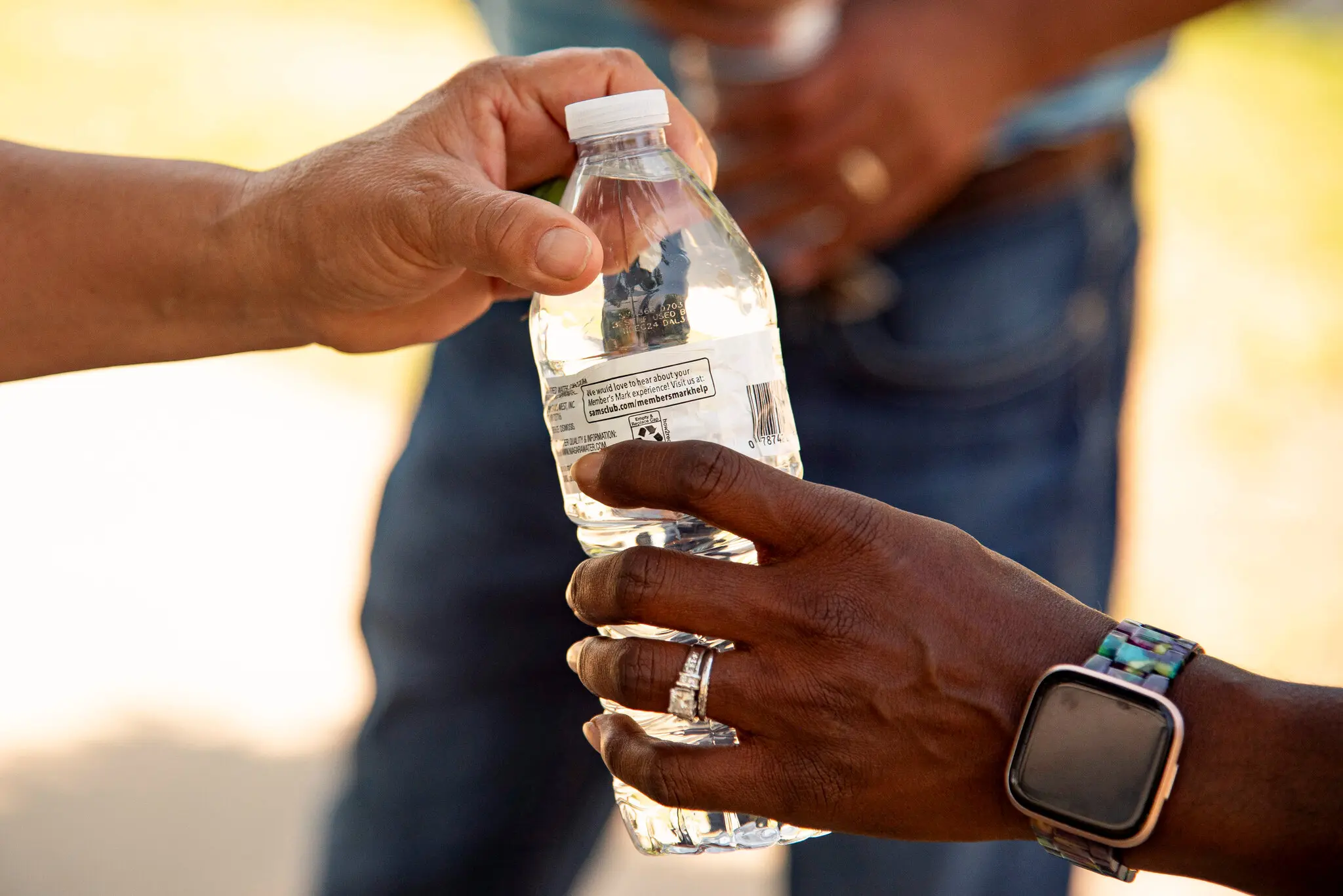A recent study published in the Proceedings of the National Academy of Sciences has revealed the presence of nanoplastics in bottled water, raising concerns about the potential health risks associated with their consumption. The study, conducted by researchers at Columbia University, found that nearly all bottled water samples contained nanoplastics, which are tiny plastic particles smaller than one micrometer in size.
The study analyzed 240 bottles of water from 11 different brands and found that 93% of the samples contained nanoplastics. The researchers used a novel technique to detect the presence of nanoplastics in the water, which involved using two lasers to excite the plastic particles and observe their resonance.
The study’s lead author, Dr. Wei Min, a chemistry professor at Columbia University, stated that “Whatever microplastic is doing to human health, I would say nanoplastics are going to be more dangerous.” The study’s findings suggest that the tiny size of nanoplastics may allow them to penetrate deeper into the body and cause more harm than larger microplastics.
The study’s co-author, Dr. Sherri Mason, a professor of sustainability at Penn State Behrend, noted that the presence of nanoplastics in bottled water is a concern because “we know that plastic is not just something that’s external to our bodies, it’s something that’s being absorbed and ingested.”
The study’s findings have sparked calls for further research into the potential health risks associated with nanoplastics in bottled water. The World Health Organization has acknowledged the study’s findings and has stated that it will review the evidence and update its guidelines on microplastics in drinking water as needed.
The use of nanoplastics in bottled water has been a growing concern in recent years, as the popularity of bottled water has increased. The bottled water industry has been criticized for its environmental impact, as well as the potential health risks associated with the use of plastic bottles.
The study’s findings have also raised questions about the adequacy of current regulations regarding the use of Nanoplastics in bottled water. The U.S. Food and Drug Administration (FDA) has guidelines for the use of microplastics in food and beverages, but these guidelines do not address the use of nanoplastics specifically.
What are some alternatives to bottled water?
There are many alternatives to bottled water that are more sustainable and cost-effective. Here are some options:
1. Tap water: Tap water is a convenient and affordable option to stay hydrated. It is regulated by the Environmental Protection Agency (EPA) and must meet certain standards for quality and safety.
2. Filtered Water: If you are concerned about the taste or quality of your tap water, you can use a water filter to purify it. There are several types of water filters available, including pitcher filters, faucet filters, and under-sink filters.
3. Reusable Water Bottles: Reusable water bottles are a great alternative to disposable plastic bottles. They are made of durable materials like stainless steel or glass and can be filled with tap water or filtered water.
4. Spring Water: Spring water is collected from natural springs and is often bottled at the source. This is a great option for those who like the taste of bottled water but want to avoid the environmental impact of plastic bottles.
5. Distilled Water: Distilled water is pure water that has been boiled and condensed to remove impurities. This is a good option for people who want to remove minerals and other impurities from their drinking water.
6. Alkaline Water: Alkaline water has a higher pH level than regular water and is believed to have health benefits. It can be found in bottles or made at home with a water ionizer.
7. Sparkling Water: Sparkling water is carbonated water that is flavored or infused with minerals. It is a popular alternative to still water and can be found in bottles or made at home with a seltzer maker.
8. Flavored Water: Flavored water is water that has fruits, herbs, or other flavors added to it. This is a great option for those who want to add some variety to their drinking water.
9. Coconut Water: Coconut water is a natural source of hydration that is high in electrolytes. It is a good choice for athletes or people who engage in vigorous physical activity.
10. Milk Alternatives: For those who are lactose intolerant or prefer non-dairy alternatives, milk alternatives like almond milk, soy milk, and oat milk can be a good alternative to bottled water.
Overall, there are many alternatives to bottled water that are more sustainable and cost-effective. By choosing one of these options, you can reduce your environmental impact and save money on your water consumption.






Thank you for your sharing. I am worried that I lack creative ideas. It is your article that makes me full of hope. Thank you. But, I have a question, can you help me?